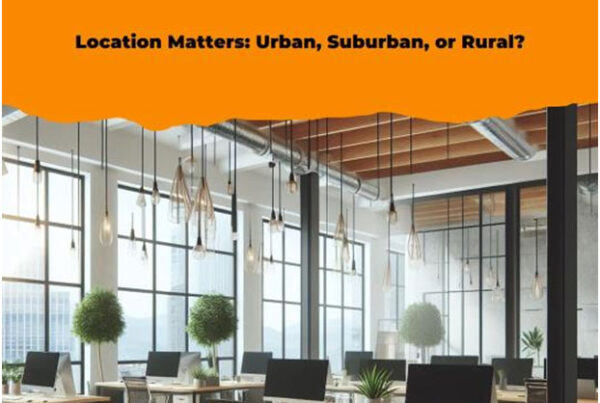
What is the Paycheck Protection Program (PPP)?
As of April 3rd, Congress passed legislation that allocates $350 billion in loans to small businesses as part of the Coronavirus Small Business Loan Program which covers Coronavirus Aid, Relief, and Economic Security (CARES) Act.
Known as the Paycheck Protection Program (PPP), the initiative provides 100% federally guaranteed loans to small businesses through the Small Business Administration (SBA).
The PPP is meant to support small businesses through the economic hardship placed on them during the COVID-19 pandemic. Its primary purpose is for small businesses to maintain payments to employees, as well as cover other essential business expenses such as rent, mortgage interest, and utilities.
Many questions have arisen around the newly formed program and are addressed below.
Who is Eligible?
The SBA PPP website says the following are eligible if affected by the coronavirus/COVID-19:
- Any small business with less than 500 employees (including sole proprietorships, independent contractors, and self-employed persons)
- Private non-profit organizations
- 501 (c)(19) veterans organizations
- Certain businesses in the hospitality or food industry with more than one location could be eligible if their individual locations employ less than 500 workers.
Where do I Apply?
Not every bank and the traditional lender is going to be authorized to issue these loans. The SBA has an approved list of lenders and has set up guidelines for other institutions that may be interested in taking part.
A complete list can be found on the SBA page found here.
Due to the sheer volume of applications being submitted, many banks and lenders are only allowing applicants that have an existing business account with them currently to participate, but this is a case by case situation.
Concerns have been raised that businesses with no prior history of borrowing will have a harder time receiving what may be a necessary loan for them.
Lawmakers have made it clear the current guidelines are still malleable, however until any changes are made, the funds are only available as long as the $350 billion lasts.
When Can I Expect the Loan?
This depends on your lender. The loan is meant to be immediate relief to business owners. It was originally promoted as taking only a single day to receive funds once approved.
However, many lenders are being clear before you apply that it isn’t certain how quickly they can get the money to the businesses. This is due to the sheer volume of requests and new guidelines that many lenders are working through.
Loan forgiveness?
The SBA will forgive loans if all employees are kept on the payroll for eight weeks and the money is used for payroll, rent, mortgage interest, or utilities.
In order for the full loan to be forgiven, at least Three quarters of the amount must be used for payroll. Forgiveness will be reduced if salaries are decreased or the number of full-time employees is decreased.
If employees have already been laid off, they must be rehired by June 30th in order to qualify for total loan forgiveness.
All loan payments (for expenses made outside of the loan forgiveness parameters) are deferred for the next six months. The loan has a maturity of 2 years and an interest rate of 1%.
How Much Money Can Small Businesses Receive?
They can get up to 2.5 times their total monthly payroll (with a maximum of $10 million). The payroll amount is derived from expenses before the pandemic.
There are also a couple of stipulations when calculating this amount. The amount is based on employees paid $100k or less. If an employee is paid more than $100k, they are only counted towards this loan amount up to $100k.
Example: Employee 1 makes $175,000
Employee 2 makes $88,000
Total amount to claim for payroll is $188,000
All guidelines can be found in the SBA’s Interim Final Rule here.
Q and A
Q. I have a small business that requires I rent office space, but I do not have an existing relationship with a lender as I have not had to borrow money before now. Do I qualify for the PPP?
A. As long as you meet the SBA’s requirements, you do qualify. Your next step is going to be to find a local lender and connect with them. Many are in the beginning phases, and while some are only working with existing customers, many others are simply taking basic info to connect on a first-come, first-serve basis.
Q. I have a qualifying small business in Clifton Park, NY. Where can I find a local lender approved for the PPP?
A. On this SBA page, you can enter your zip code and it will pull up lenders in your area authorized for PPP loans.
Q. I signed up on my bank’s website to apply and haven’t heard anything back, what should I do now?
A. Many lenders have made it clear that they are currently taking basic information and are managing a large number of requests on a first-come, first-serve basis. Your lender should be keeping you updated with periodic notifications, but there is no guarantee of when they will get to your application. Many are ensuring their customers that they are working continuously to manage the workload.
Q. What other assistance is available to my business in addition to the PPP?
A. The SBA has two other programs listed on their site in response to the pandemic. The first is disaster assistance, which is available to qualifying small businesses in all U.S. states, Washington D.C., and U.S. territories. The second is Enhanced Debt Relief, a program to help small businesses overcome the challenges created by the pandemic.
Q. Can I fill out the application directly on the SBA’s website?
A. No, you must go through an approved lender. However, they do have an example application you can download. It is currently only two pages long and much less information is needed than a traditional loan.
Q. Do independent contractors count as employees for purposes of PPP loan forgiveness?
A. No, independent contractors have the ability to apply for a PPP loan on their own so they do not count for purposes of a borrower’s PPP loan forgiveness.
Q. Can I use my PPP loan to purchase commercial real estate to hire new workers?
A. The loan is designed to maintain current workers and bills. Only qualified expenses will be entitled to loan forgiveness.




